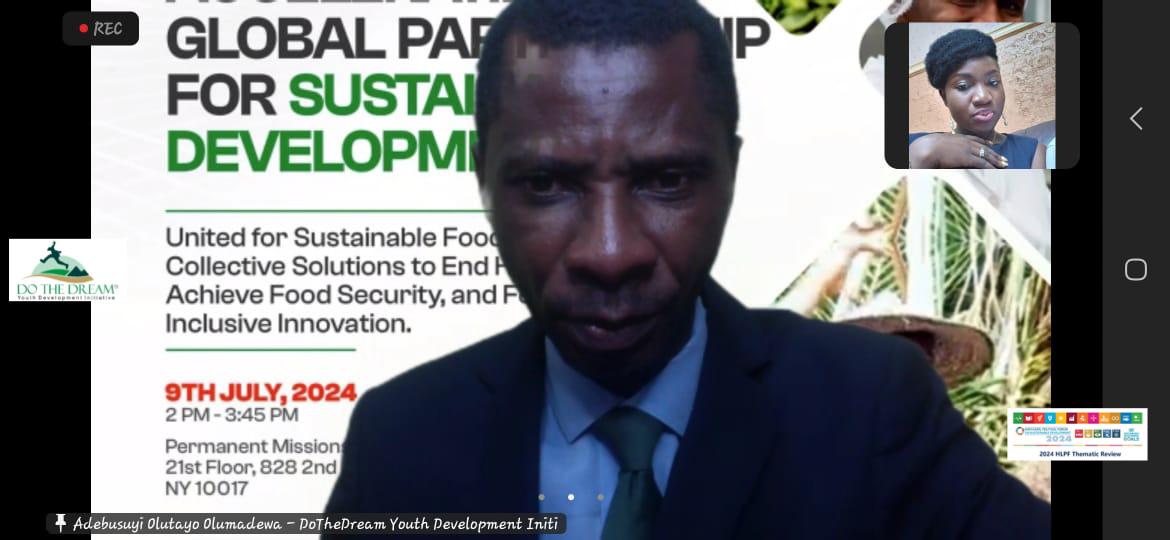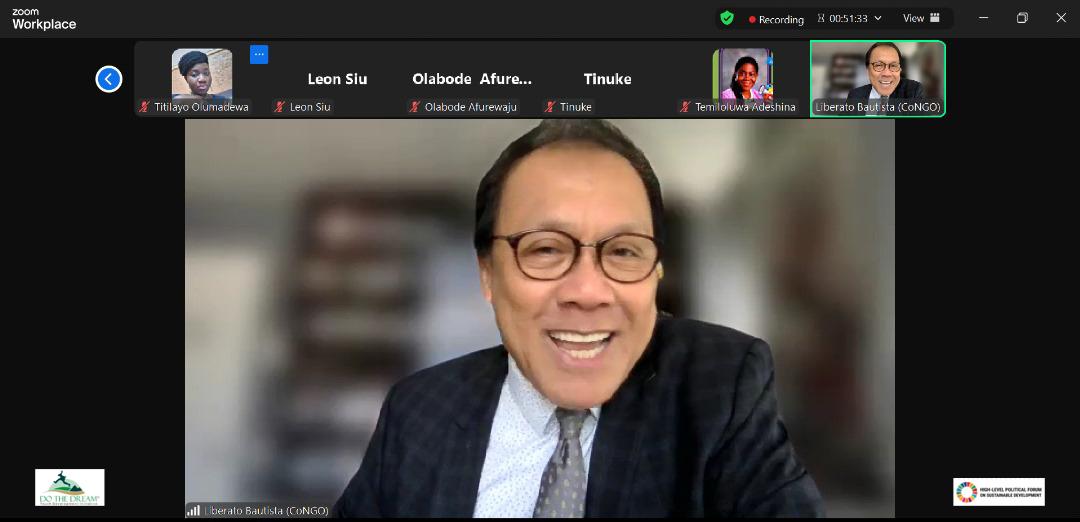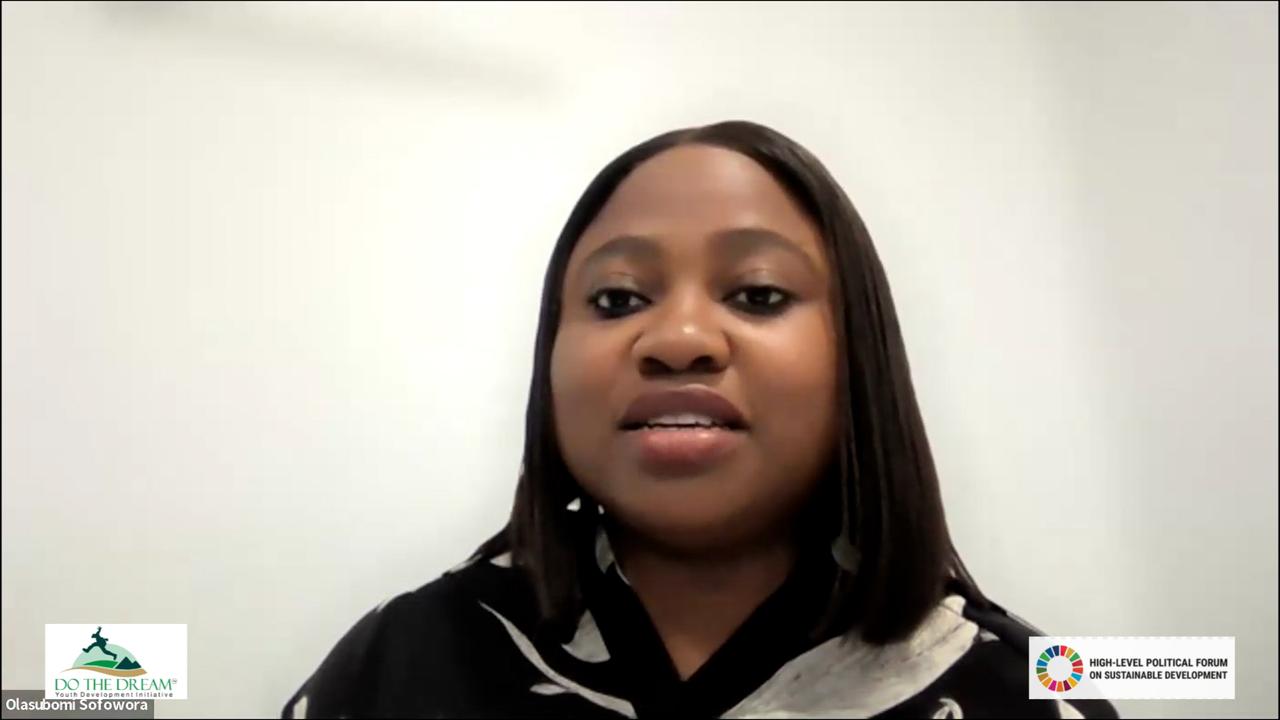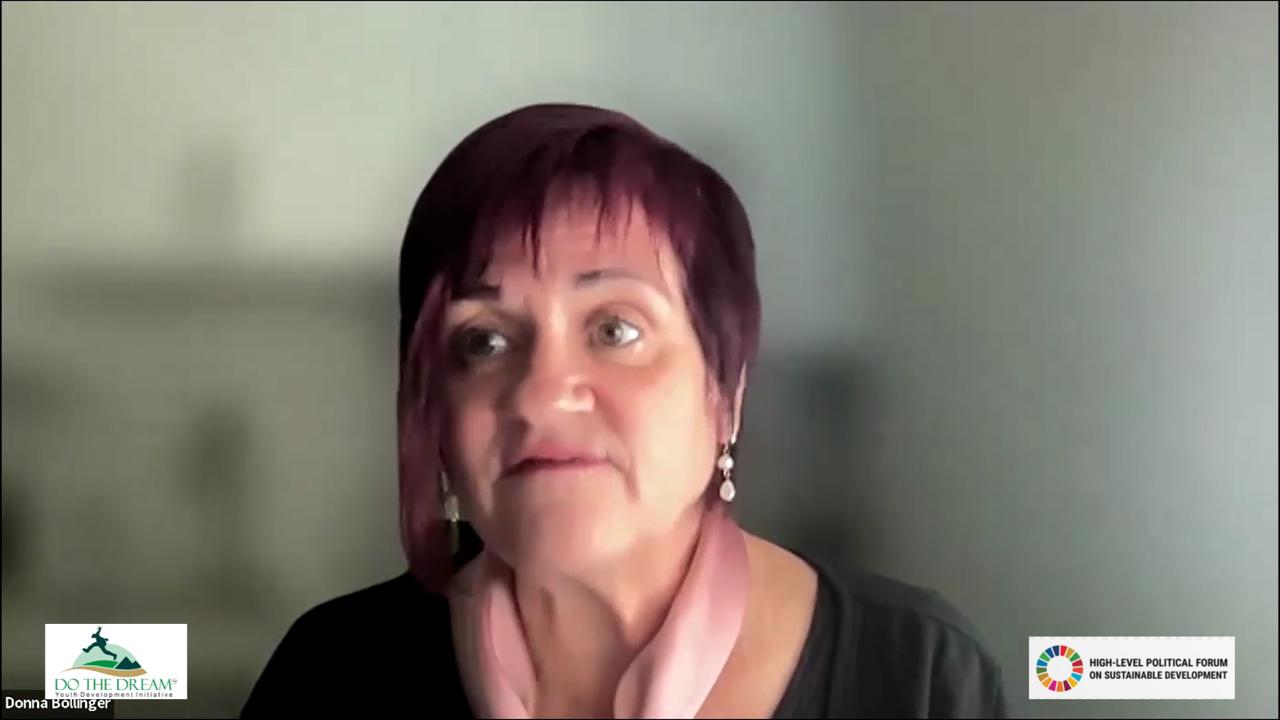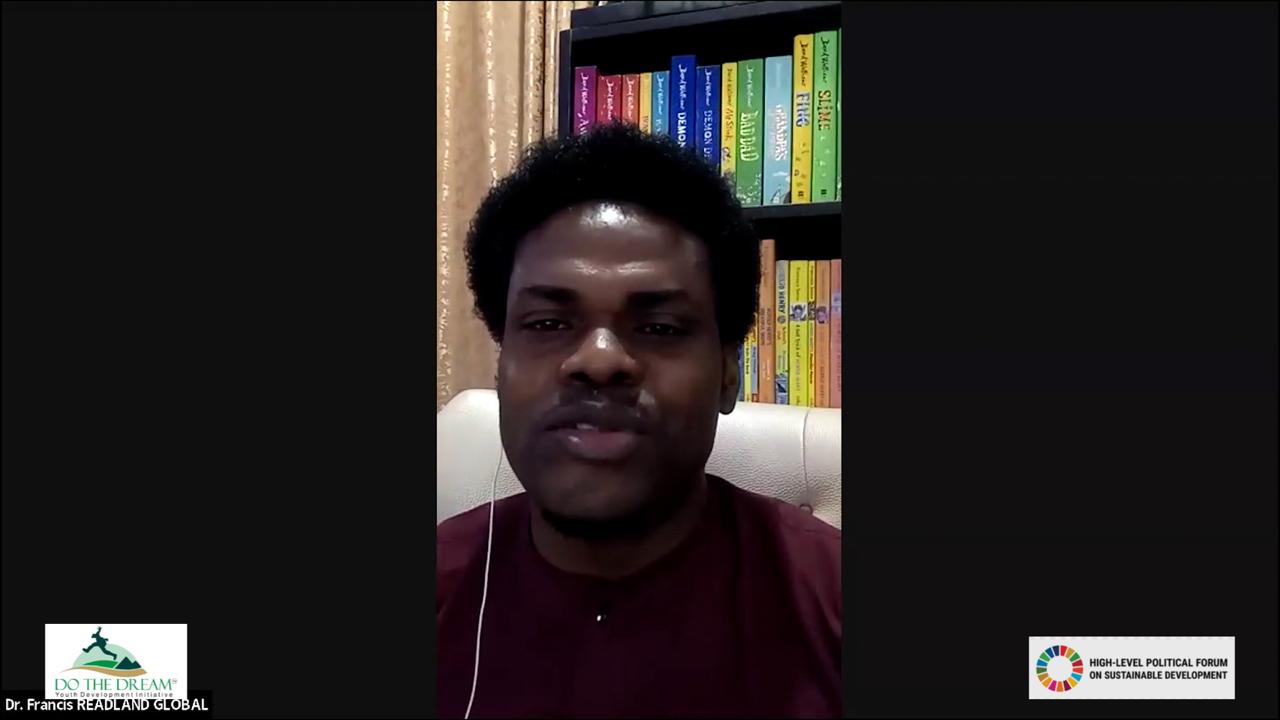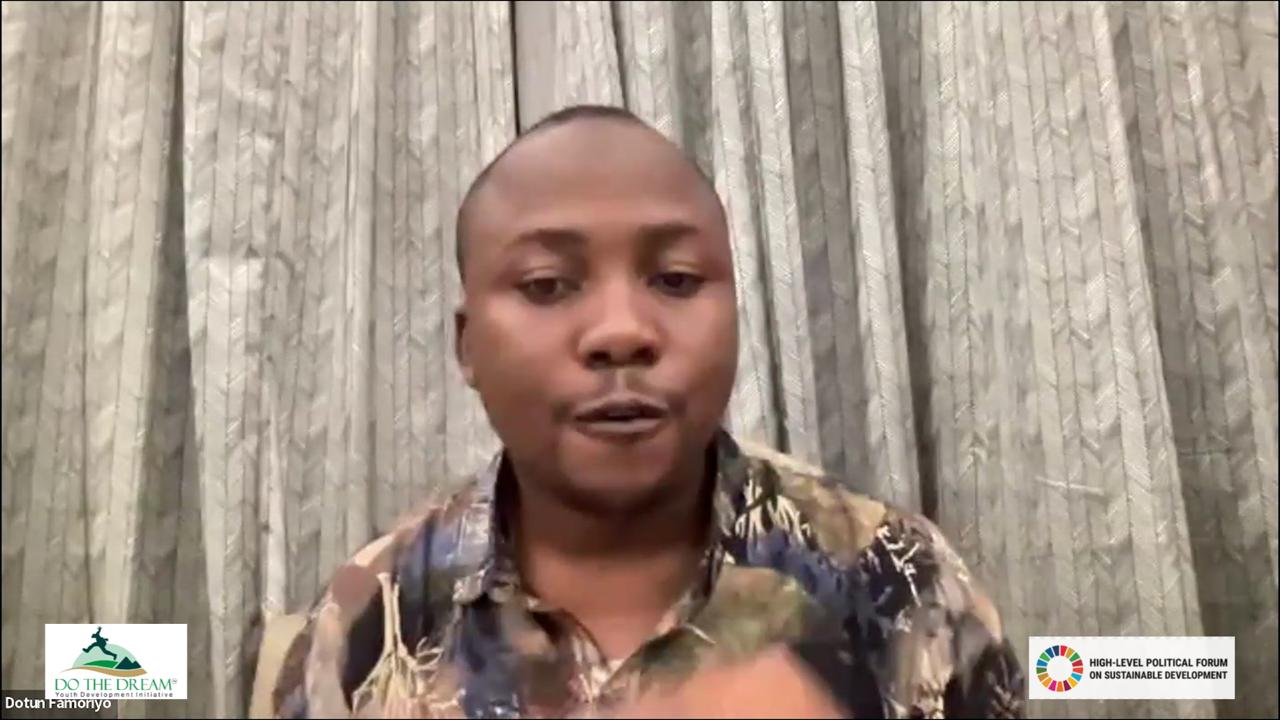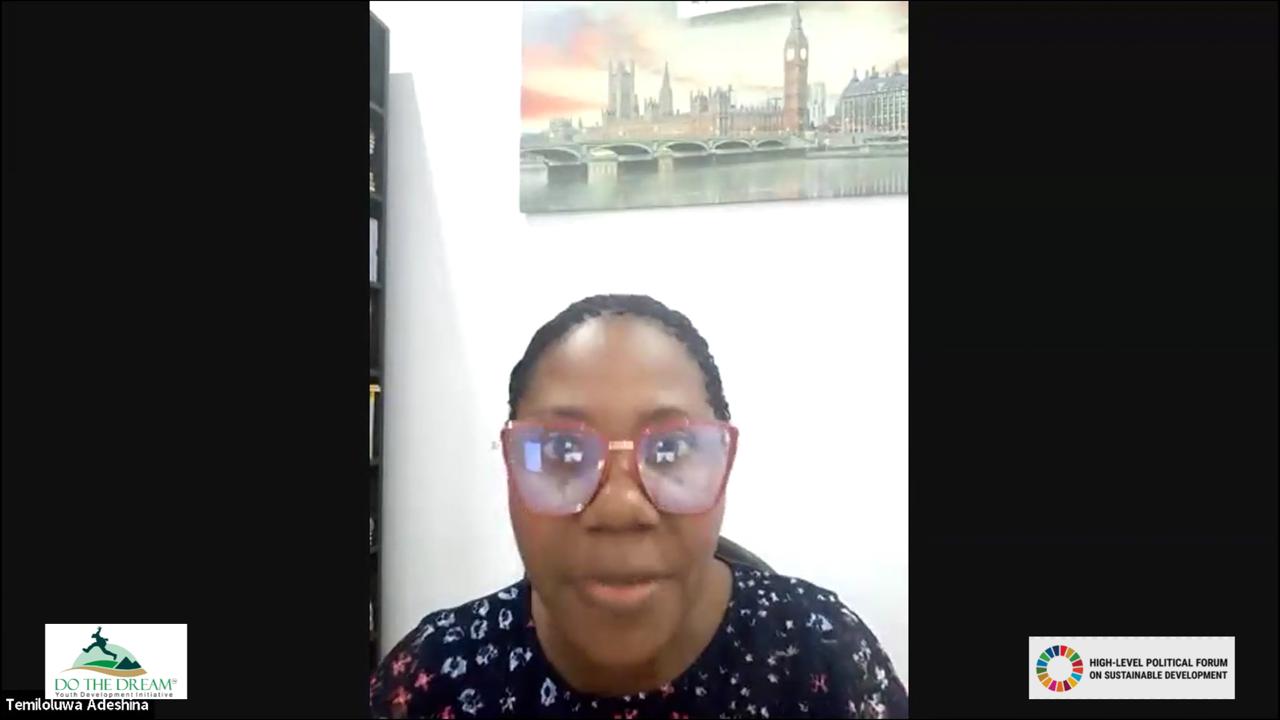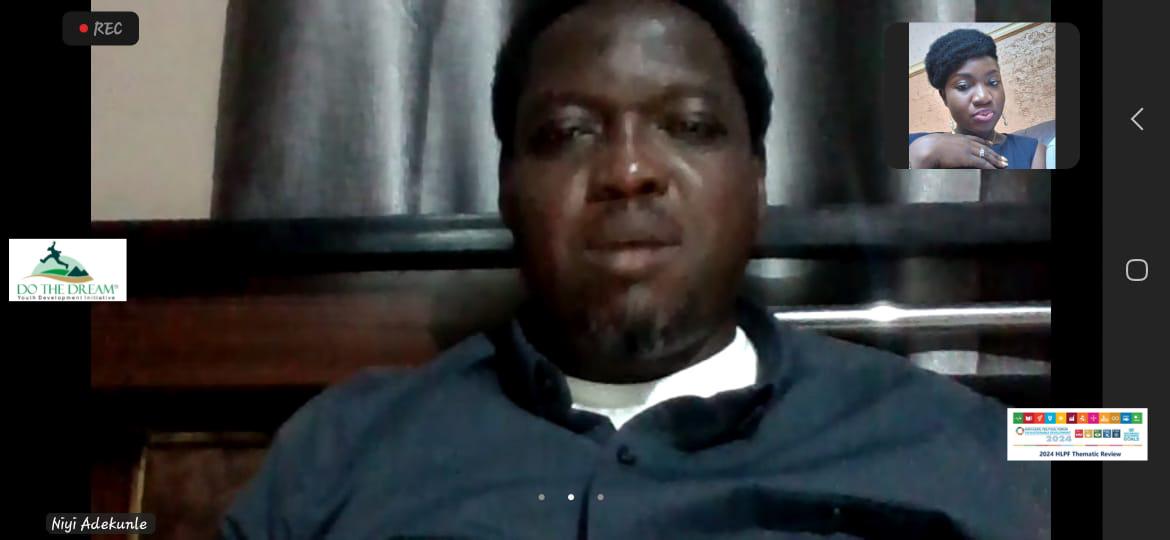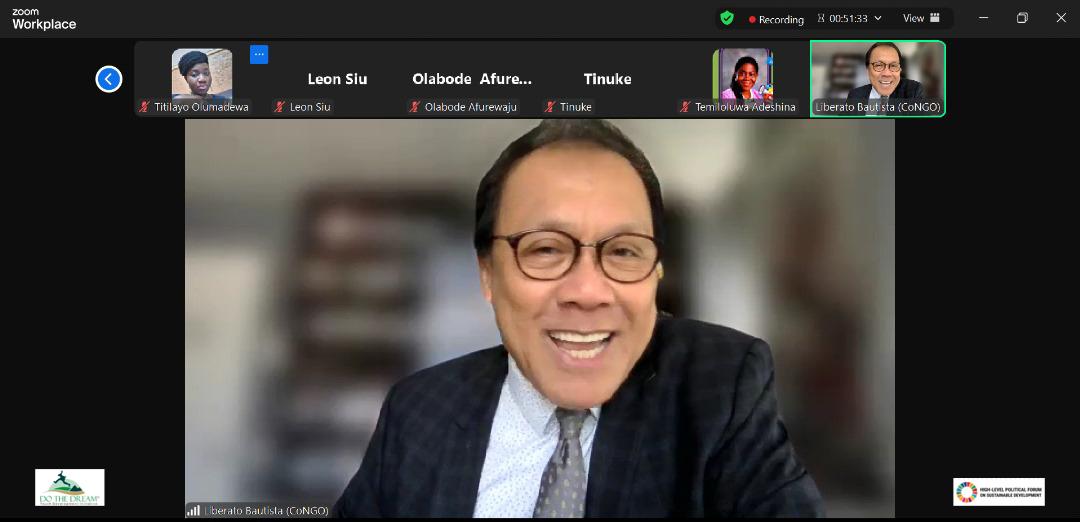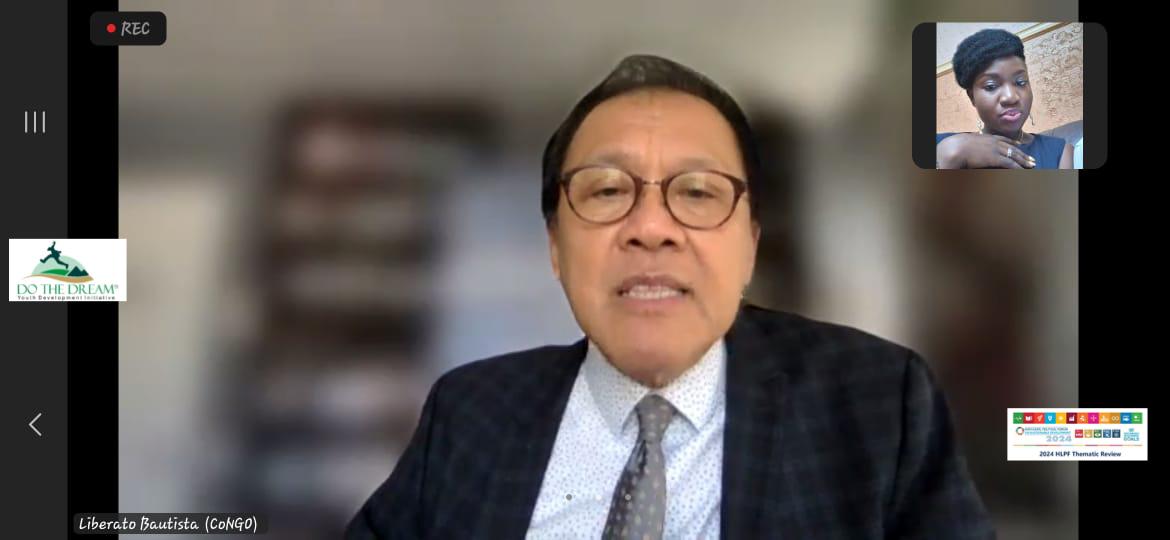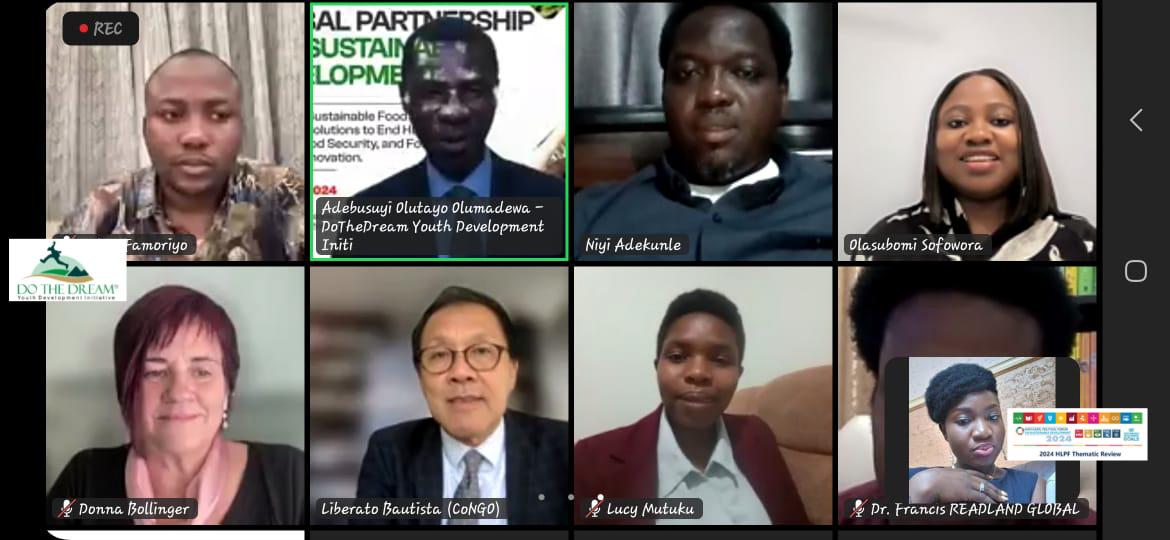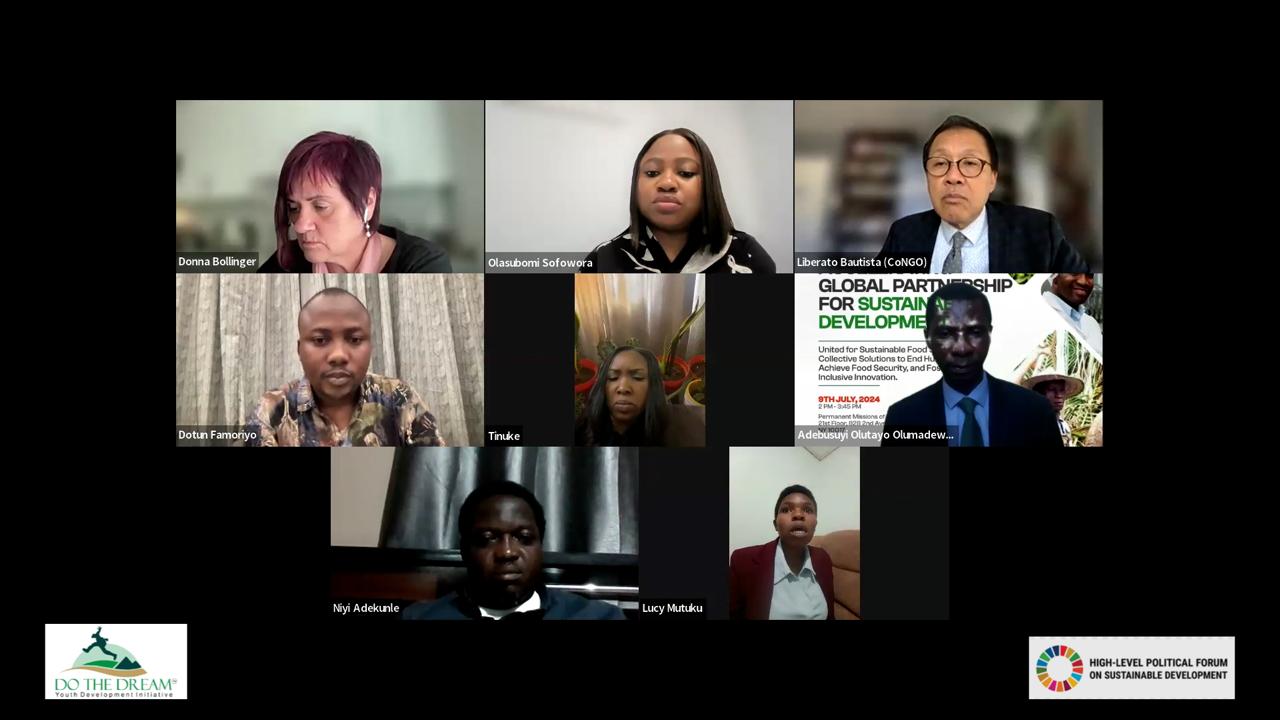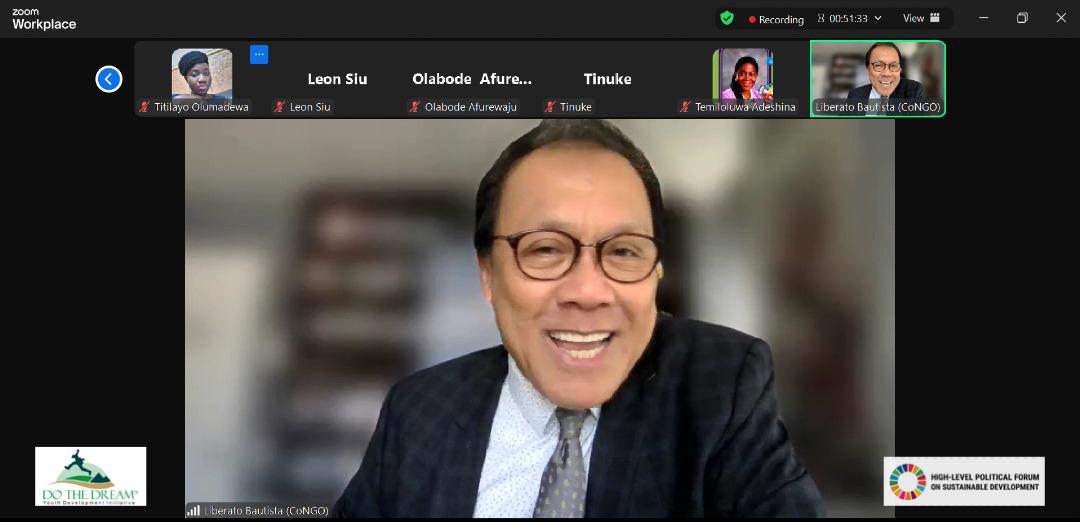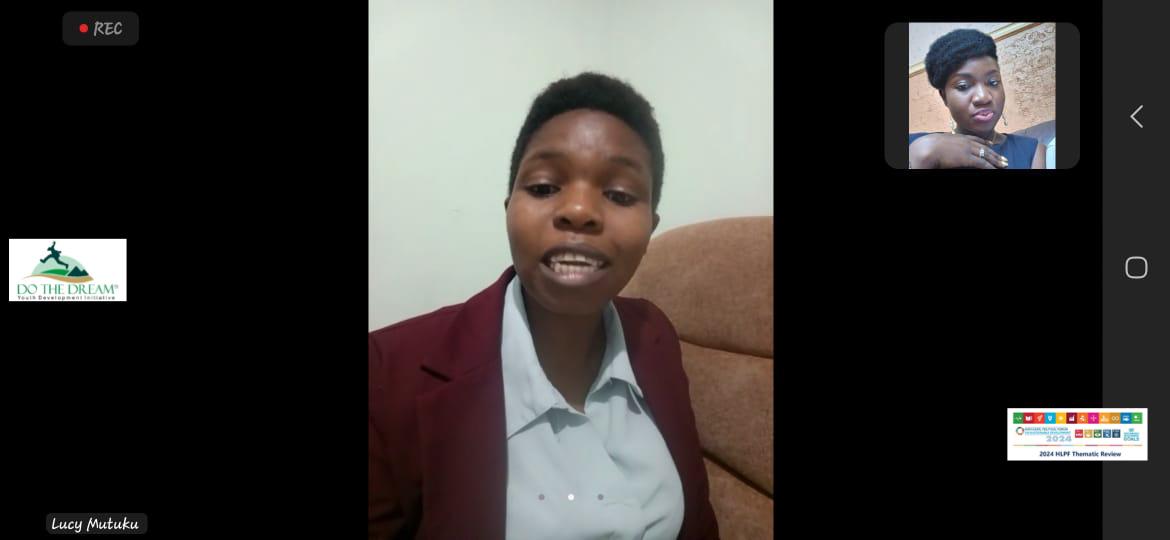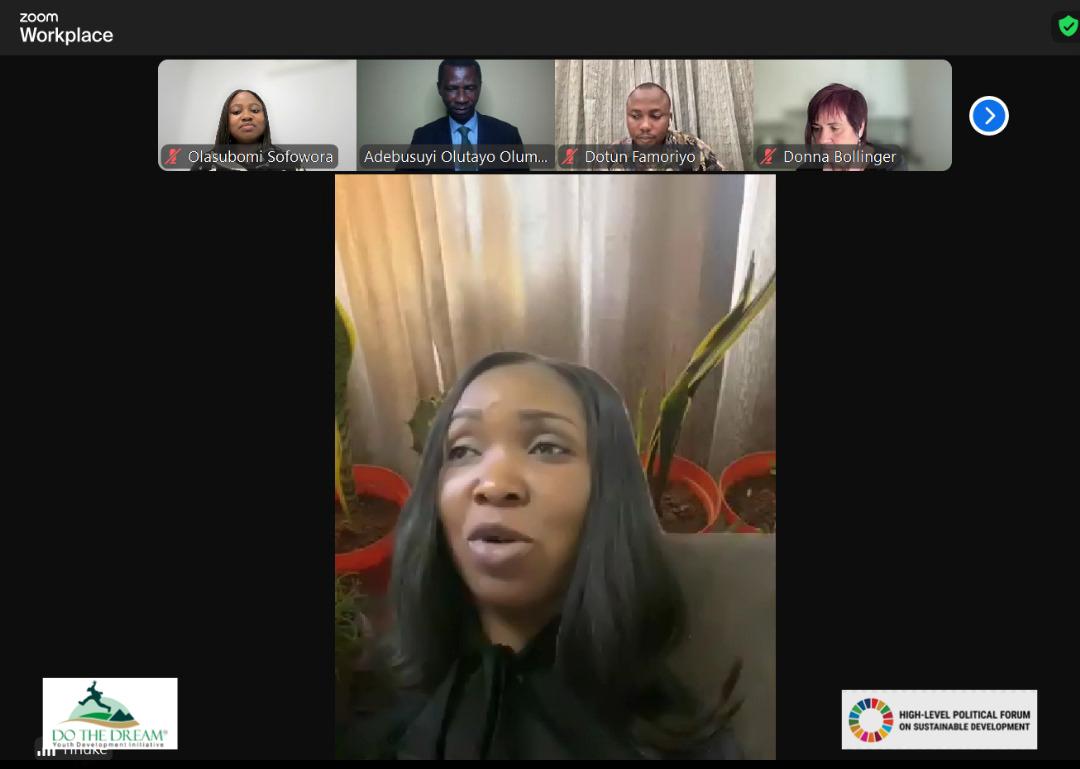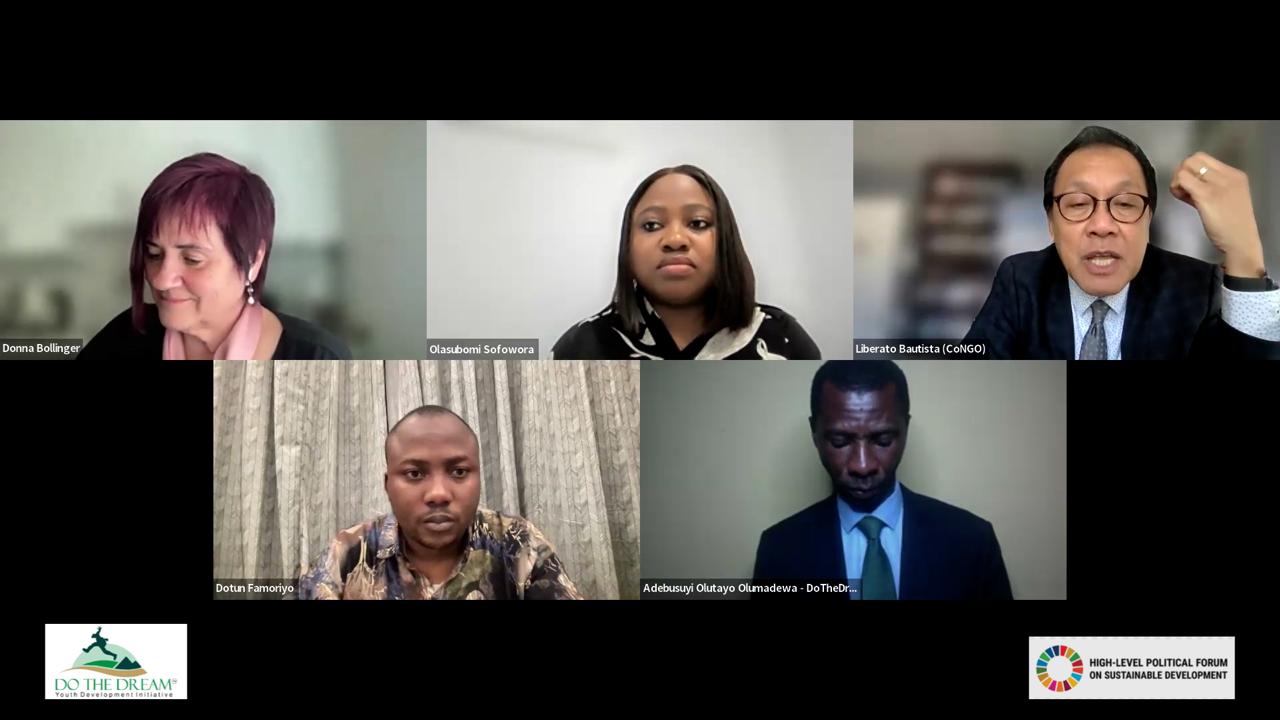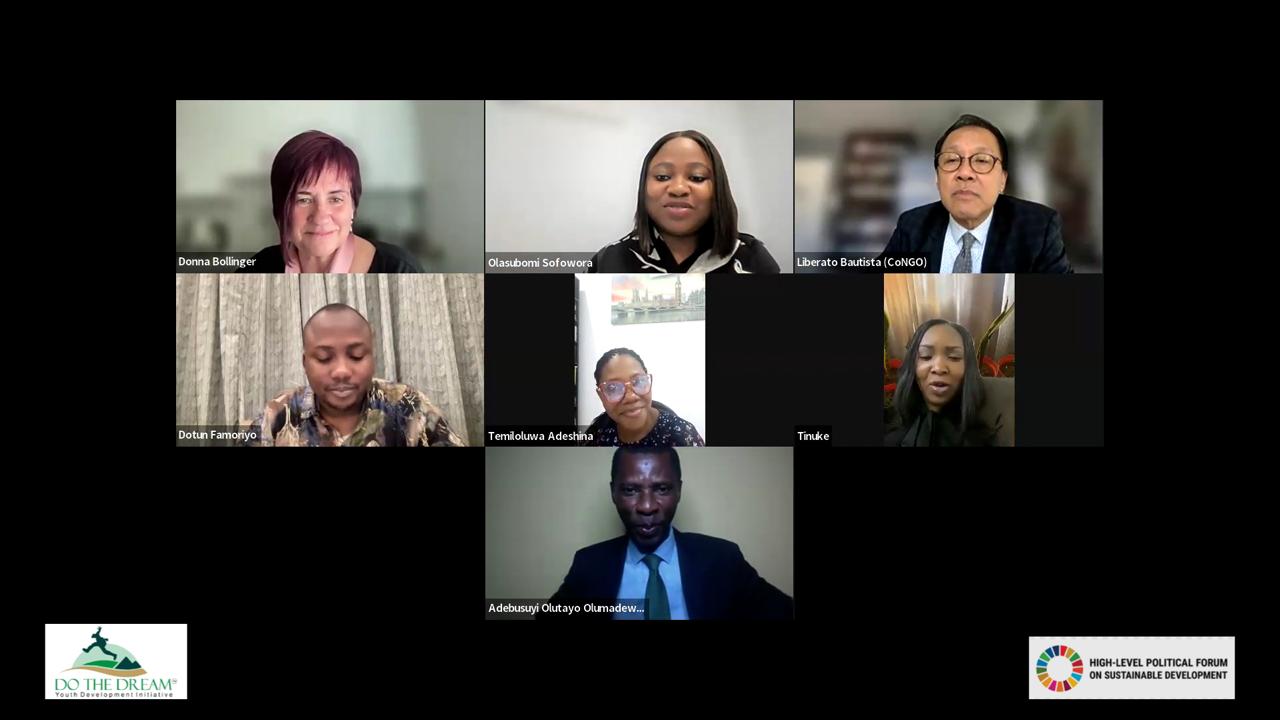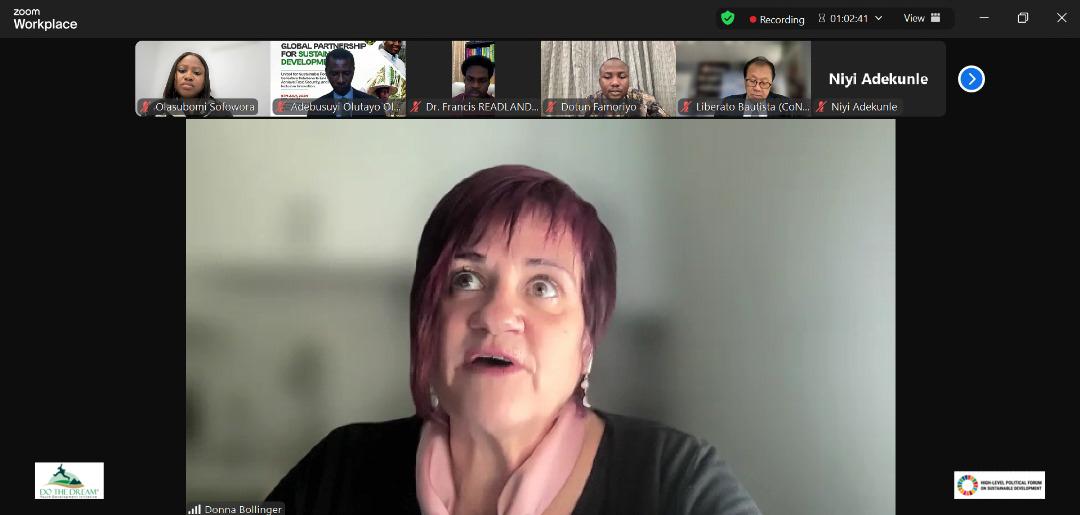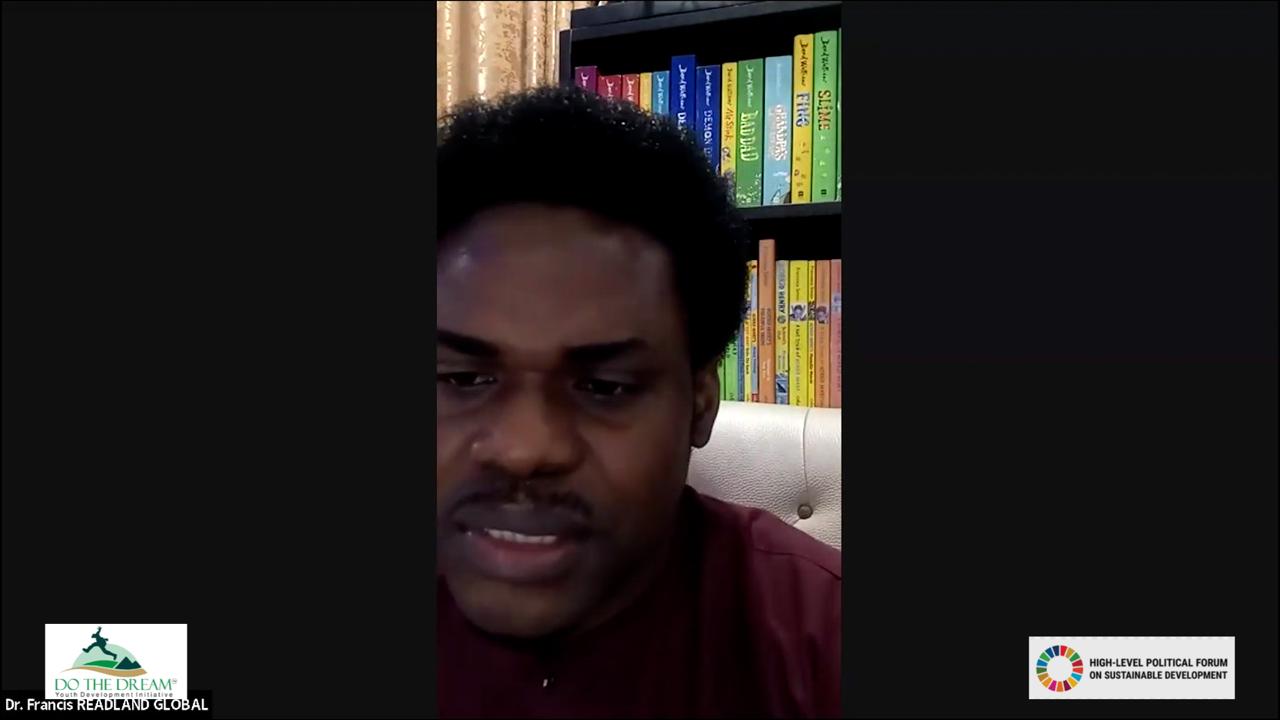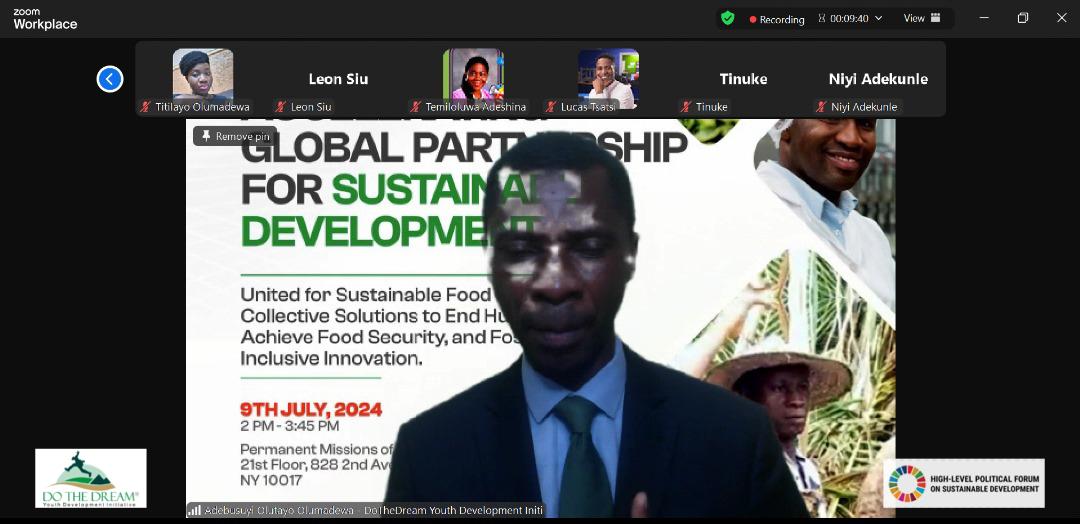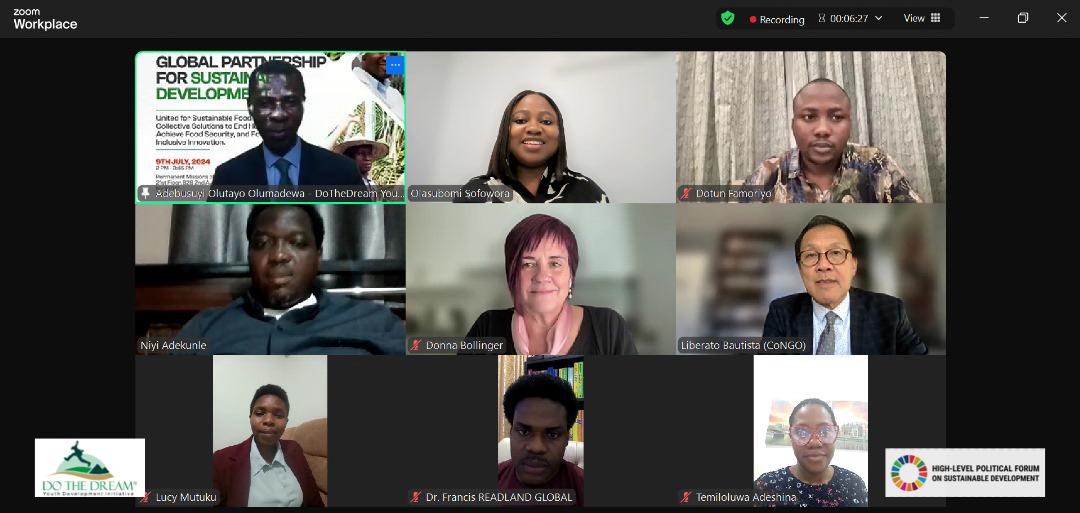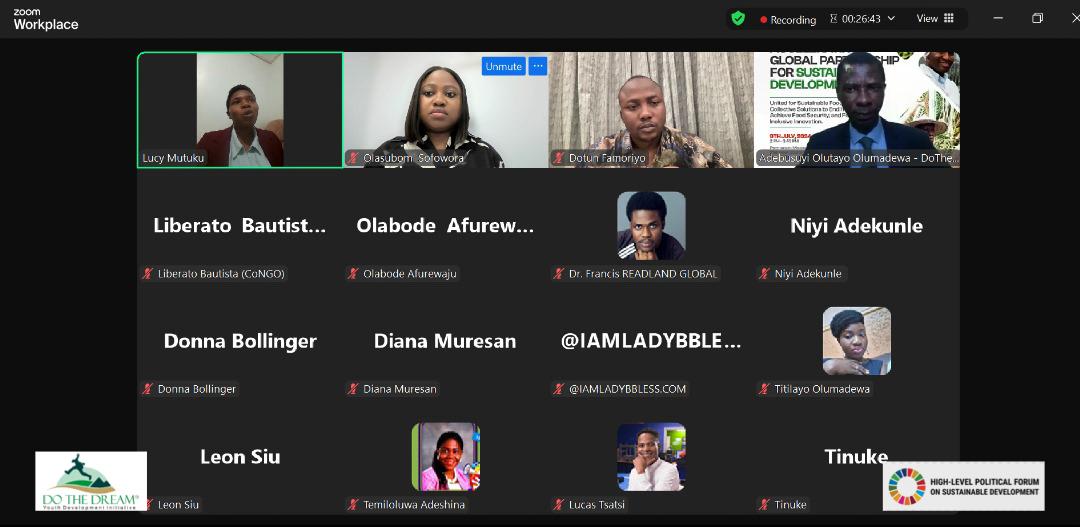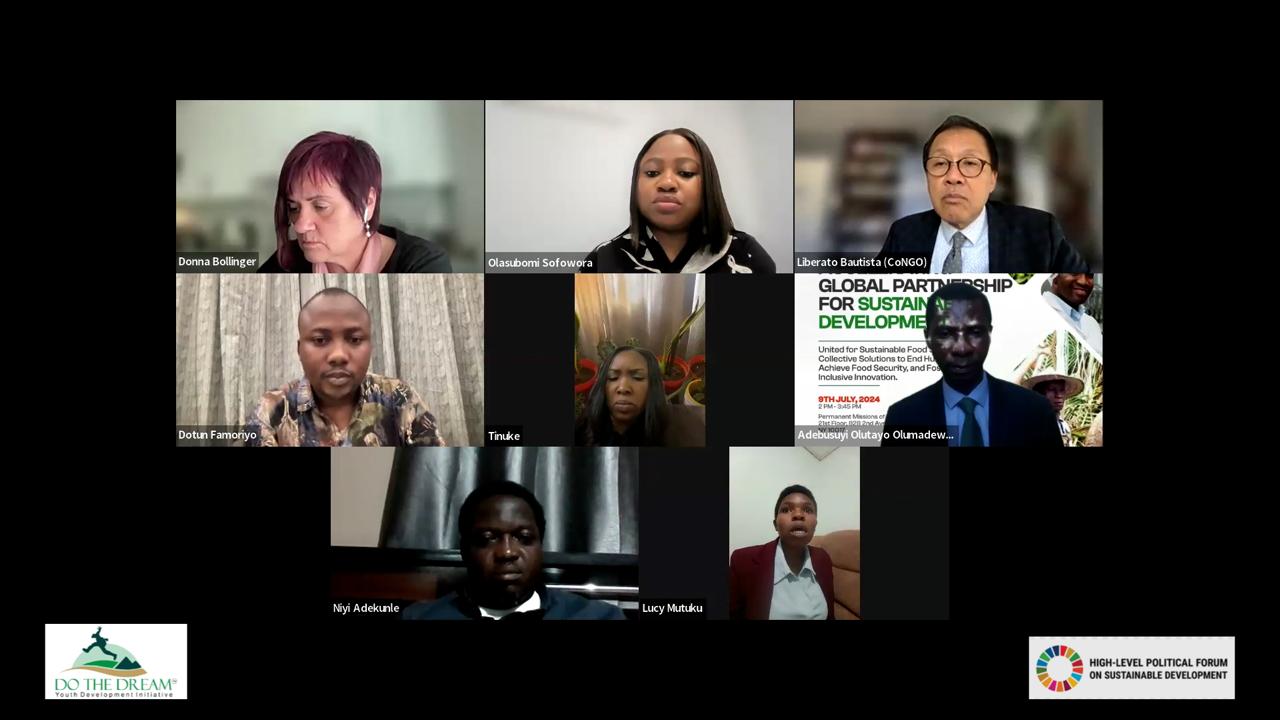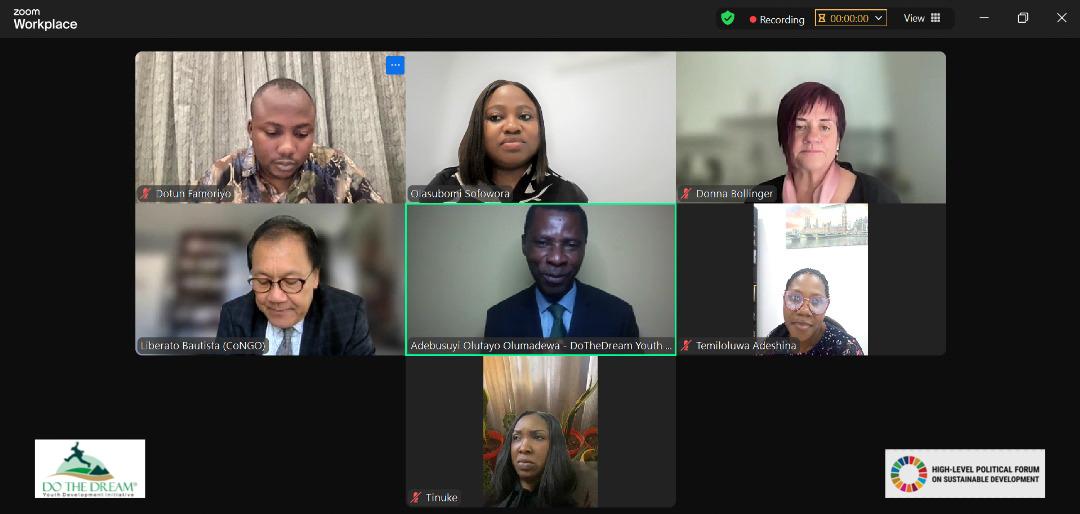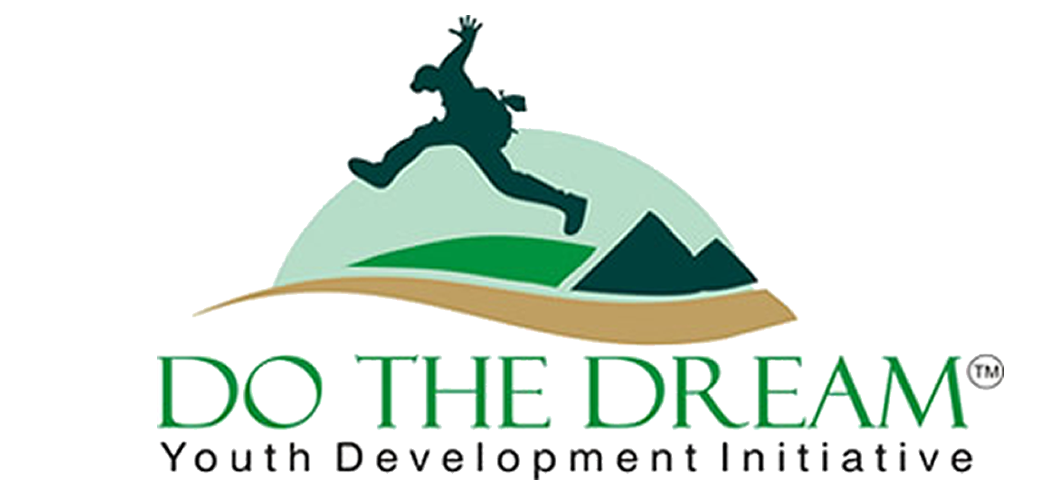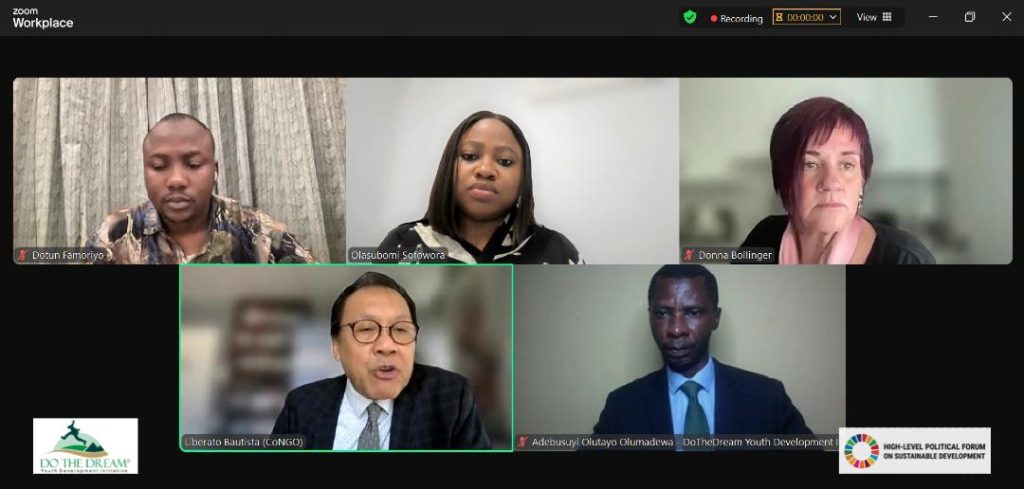
The 2030 Agenda for Sustainable Development sets ambitious goals of eradicating poverty, End hunger, achieve food security and improved nutrition and promote sustainable agriculture; Take urgent action to combat climate change and its impacts; Promote peaceful and inclusive societies for sustainable development, provide access to justice for all and build effective, accountable and inclusive institutions at all levels; and Strengthen the means of implementation and revitalize the Global Partnership for Sustainable Development.Inclusiveness for all is imperative in achieving with Intervention from Government and Private Sector leading to Public-Private Partnerships (PPPs) in offering promising solution to bridge this financing gap and mobilize resources for sustainable development.
 Key Takeaways:
Key Takeaways:
- Collaboration and partnerships are crucial for achieving Zero Hunger.
- Empowering farmers and local communities is essential for sustainable food security.
- Investing in education, technology, and sustainable practices is necessary.
- Food sovereignty and protecting indigenous crops are important considerations.
- Addressing the root causes of hunger, such as poverty and inequality, is critical.
Next Steps:
- DoTheDream YDI to have 200,000 households subscribe to Home Farm projects and the Food Bank Project by December 2026.
- Replicating the Home Farm project in different regions with customization for local needs.
- Drafting a UN resolution to inspire food security efforts, particularly focused on preserving farmers in Africa.
- Continued dialogue and collaboration among stakeholders to find solutions for achieving Zero Hunger.
 The 2024 High Level Political Forum Virtual Side Event, held on July 9, 2024, was organized by DoTheDream Youth Development Initiative in collaboration with Alliance of Social Transformers For Sustainable Development, Global Alliance For Women and Girls Are Aset project, and United Africa Steam Network, with Olasubomi Sofowora, an international and community development professional and Board Member of DoTheDream Youth Development Initiative, as the moderator. The event focused on accelerating global partnerships for sustainable development and uniting for sustainable food systems, addressing the rising number of people facing hunger and food insecurity, with 10% of the global population, equivalent to almost 800,000,000 people, still facing chronic hunger. To achieve Zero Hunger by 2030, urgent, coordinated action and policy solutions are necessary to address entrenched inequalities, transform food systems, invest in sustainable agricultural practices, and reduce the impacts of conflict and the pandemic on global nutrition and food security.
The 2024 High Level Political Forum Virtual Side Event, held on July 9, 2024, was organized by DoTheDream Youth Development Initiative in collaboration with Alliance of Social Transformers For Sustainable Development, Global Alliance For Women and Girls Are Aset project, and United Africa Steam Network, with Olasubomi Sofowora, an international and community development professional and Board Member of DoTheDream Youth Development Initiative, as the moderator. The event focused on accelerating global partnerships for sustainable development and uniting for sustainable food systems, addressing the rising number of people facing hunger and food insecurity, with 10% of the global population, equivalent to almost 800,000,000 people, still facing chronic hunger. To achieve Zero Hunger by 2030, urgent, coordinated action and policy solutions are necessary to address entrenched inequalities, transform food systems, invest in sustainable agricultural practices, and reduce the impacts of conflict and the pandemic on global nutrition and food security.
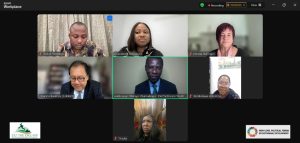 The event featured a panel of esteemed speakers and participants, including Liberato Bautista – President Conference of NGO in Consultative relationship with United Nations CoNGO, Arc. Lola Ibrahim mnia Board Chair, WAVE Foundation, Donna Bollanger -United Church of Christ main representative to the UN, Adebusuyi Olutayo Olumadewa CEO / Founder of DoTheDream Youth Development Initiative,our convener, Lucy Mutuku, CEO, National Youth Coordinator, Kenya,Dr Francis Adeshina, Founder of Readland Global, Dotun Famoriyo CEO Cheetah Policy Institute who shared practical insights on achieving a world where no one goes hungry and food systems are resilient, sustainable, and accessible to all.
The event featured a panel of esteemed speakers and participants, including Liberato Bautista – President Conference of NGO in Consultative relationship with United Nations CoNGO, Arc. Lola Ibrahim mnia Board Chair, WAVE Foundation, Donna Bollanger -United Church of Christ main representative to the UN, Adebusuyi Olutayo Olumadewa CEO / Founder of DoTheDream Youth Development Initiative,our convener, Lucy Mutuku, CEO, National Youth Coordinator, Kenya,Dr Francis Adeshina, Founder of Readland Global, Dotun Famoriyo CEO Cheetah Policy Institute who shared practical insights on achieving a world where no one goes hungry and food systems are resilient, sustainable, and accessible to all.
The Opening Presentation by Adebusuyi Olutayo Olumadewa Presentations Focuses on the reinforcing the 2030 agenda and eradicating poverty in times of multiple crisis, the effective delivery of sustainable, resilient, and innovative solutions is an urgent call to empower the people to take ownership of their role. As huge stakeholders, providing vital solution in achieving sustainable development as we approach summit of the future. That is the essence of our gathering today, of finding beautiful solutions, and we are making these solutions more inclusive. The people as a vital stakeholders must see their role in ending hunger, achieve food security, and improve nutrition, and promote sustainable agriculture, taking urgent action to combat climate change and its impact, promoting peaceful and inclusive society for sustainable development matters at this precious time as a living thing and not just doing thing in preserving the Planet.
Each individual has a potential, and we all have a role. And our role is designed to be played at a diverse manner, which is why from the north to the south, from the east to the west, we are gathered here today to deliberate and to find sustainable solutions in ending hunger in our world. And, ladies and gentlemen, we came up with, the cycle of prosperity for the people that if we get our people to work, they’re gonna come up with a project or product. And if our people come up with product and project, it’s gonna give them the presence.The presence brought, the presence takes them to places with power.The power here is that of purpose which inspire collaboration with the youths,the indigenous people, the women in achieving food security fostering Global Partnership that leads to prosperous planet.
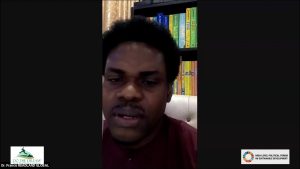 Dr. Francis Adeshina’s presentation focused on the economy of collaboration and partnership in governance and growth for sustainable development, emphasizing food security, highlighting Readland’s win at the Technovation Competition with the Food 911 app, addressing food insecurity in low-income communities, demonstrating collaboration’s power in driving sustainable development, converting hobbies to skills with global certification in partnership with the US Consulate and Cisco Global, noting the strategic importance of African youth in the future economy, emphasizing collaboration’s role in education, community engagement, and entrepreneurship, acknowledging the challenges of different interests, priorities, and work cultures, stressing the need for trust, effective communication, adaptability, shared values, diversity, inclusivity, technology, innovation, and continuous learning, concluding that collaboration is pivotal to sustainable development and urging collective action for a brighter future, thanking the audience.
Dr. Francis Adeshina’s presentation focused on the economy of collaboration and partnership in governance and growth for sustainable development, emphasizing food security, highlighting Readland’s win at the Technovation Competition with the Food 911 app, addressing food insecurity in low-income communities, demonstrating collaboration’s power in driving sustainable development, converting hobbies to skills with global certification in partnership with the US Consulate and Cisco Global, noting the strategic importance of African youth in the future economy, emphasizing collaboration’s role in education, community engagement, and entrepreneurship, acknowledging the challenges of different interests, priorities, and work cultures, stressing the need for trust, effective communication, adaptability, shared values, diversity, inclusivity, technology, innovation, and continuous learning, concluding that collaboration is pivotal to sustainable development and urging collective action for a brighter future, thanking the audience.
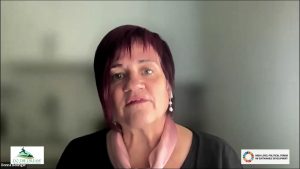 Donna Bollanger’s presentation emphasized the interrelatedness of the SDGs, particularly poverty, hunger, climate, and security, highlighting her background in global humanitarian work and rural upbringing. She shared stories from her experiences in Nigeria, Madagascar, and Finland, underscoring the impact of climate change, land grabbing, and conflict on food security. She stressed the need for partnerships and collaboration, citing the World Council of Churches’ Food for Life campaign, and emphasized the importance of a multifaceted approach, including education, training, and advocacy. She concluded by emphasizing the commitment required to address food security challenges, referencing the story of the chicken and pig, and expressing her eagerness to partner with all aspects of society to achieve Zero Hunger.
Donna Bollanger’s presentation emphasized the interrelatedness of the SDGs, particularly poverty, hunger, climate, and security, highlighting her background in global humanitarian work and rural upbringing. She shared stories from her experiences in Nigeria, Madagascar, and Finland, underscoring the impact of climate change, land grabbing, and conflict on food security. She stressed the need for partnerships and collaboration, citing the World Council of Churches’ Food for Life campaign, and emphasized the importance of a multifaceted approach, including education, training, and advocacy. She concluded by emphasizing the commitment required to address food security challenges, referencing the story of the chicken and pig, and expressing her eagerness to partner with all aspects of society to achieve Zero Hunger.
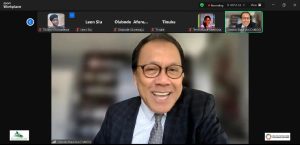 Liberato Bautista started by Congratulating DoTheDream Youth Development Initiative for organizing this event on such a topic that is ambitious in its scope but crucial to address if only for an hour and 40 minutes. To the dream is one of the newest members of Congo, the conference of NGOs in consultative relationship with the United Nations.Thanks to Ambassador Adebusuyi Olutayo Olumadewa, we may soon have enough NGOs focused on issues and concerns about Africa to form what will be called at the start, the Congo Working Group on Africa. And maybe with your help, we will be able to organize this before the end of the year. I hope we will have enough NGOs in consultative status with ECOSOC to warrant the formation of a Congo Regional Committee on Africa just like the one that we now have in the Asia Pacific region. Given the possibilities of online meetings and events, the working group and, eventually, the regional committee will be a partnership venue for NGOs working on African issues and concerns. Such partnerships are crucial to robust and transformative multilateralism.
Liberato Bautista started by Congratulating DoTheDream Youth Development Initiative for organizing this event on such a topic that is ambitious in its scope but crucial to address if only for an hour and 40 minutes. To the dream is one of the newest members of Congo, the conference of NGOs in consultative relationship with the United Nations.Thanks to Ambassador Adebusuyi Olutayo Olumadewa, we may soon have enough NGOs focused on issues and concerns about Africa to form what will be called at the start, the Congo Working Group on Africa. And maybe with your help, we will be able to organize this before the end of the year. I hope we will have enough NGOs in consultative status with ECOSOC to warrant the formation of a Congo Regional Committee on Africa just like the one that we now have in the Asia Pacific region. Given the possibilities of online meetings and events, the working group and, eventually, the regional committee will be a partnership venue for NGOs working on African issues and concerns. Such partnerships are crucial to robust and transformative multilateralism. The participation of civil society in these partnerships is intrinsic to the successful implementation of the SDGs, to say the least.He started his intervention here with this note because at the core Congo does is advocacy for the broadest breadth of civil society to participate and get involved in crafting their future and that of their planetary habitation. He emphasized the importance of partnerships and multilateralism in achieving the SDGs and sustainable development. As President of CONGO (Conference of NGOs in consultative relationship with the United Nations), he highlighted the need for civil society participation and access to multilateral platforms, emphasizing that development justice is key to achieving the SDGs. He stressed the urgency of addressing crises such as climate change, wars, and inequality, and the importance of digital justice and equal access to resources and financing. He concluded by emphasizing that partnerships must prioritize people and the planet over profit and greed, and that justice must be at the core of sustainable development efforts.
The participation of civil society in these partnerships is intrinsic to the successful implementation of the SDGs, to say the least.He started his intervention here with this note because at the core Congo does is advocacy for the broadest breadth of civil society to participate and get involved in crafting their future and that of their planetary habitation. He emphasized the importance of partnerships and multilateralism in achieving the SDGs and sustainable development. As President of CONGO (Conference of NGOs in consultative relationship with the United Nations), he highlighted the need for civil society participation and access to multilateral platforms, emphasizing that development justice is key to achieving the SDGs. He stressed the urgency of addressing crises such as climate change, wars, and inequality, and the importance of digital justice and equal access to resources and financing. He concluded by emphasizing that partnerships must prioritize people and the planet over profit and greed, and that justice must be at the core of sustainable development efforts.
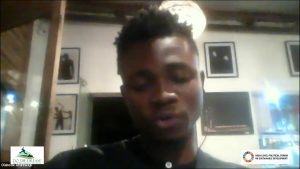 Arc Lola Ibrahim mania ably represented by Olabode Afuwa shares to address violence and empower women in Nigeria, I’d like to share a practical perspective on accelerating sustainable development goals through global partnerships. Our Goods Initiative for Fiscal Transparency (GIFT) project is a great example of how NGOs and civil society organizations can come together to achieve common goals. With Nigeria facing a severe food crisis, it’s crucial that we collaborate to address these pressing issues. The GIFT project has brought together a cluster of CSOs to promote gender inclusivity and fiscal transparency, with a gender tracking mechanism and efforts to pass a gender inclusivity bill at the national assembly level. I urge us to continue working together, with a collective vision and stable position, to demand progress on sustainable development goals. I’ve just returned from the United Nations Civil Society Conference, and I’m eager to continue this conversation
Arc Lola Ibrahim mania ably represented by Olabode Afuwa shares to address violence and empower women in Nigeria, I’d like to share a practical perspective on accelerating sustainable development goals through global partnerships. Our Goods Initiative for Fiscal Transparency (GIFT) project is a great example of how NGOs and civil society organizations can come together to achieve common goals. With Nigeria facing a severe food crisis, it’s crucial that we collaborate to address these pressing issues. The GIFT project has brought together a cluster of CSOs to promote gender inclusivity and fiscal transparency, with a gender tracking mechanism and efforts to pass a gender inclusivity bill at the national assembly level. I urge us to continue working together, with a collective vision and stable position, to demand progress on sustainable development goals. I’ve just returned from the United Nations Civil Society Conference, and I’m eager to continue this conversation
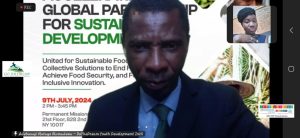 Adebusuyi Olutayo Olumadewa took a moment to acknowledge and celebrate Architect Lola Ibrahim mnia been instrumental in organizing this event, which aims to accelerate global partnerships for sustainable development. He share the post-event goal is to have 200,000 households subscribed to on-farm projects and the Food Bank Project by December 2026.Lucy Mutuku, CEO of National Youth Caucus in Kenya, emphasized the critical role of partnerships and collaboration in achieving zero hunger. She highlighted the mismatch between Africa’s vast arable land and high food import rates, stressing the need for mindset change, educatio
Adebusuyi Olutayo Olumadewa took a moment to acknowledge and celebrate Architect Lola Ibrahim mnia been instrumental in organizing this event, which aims to accelerate global partnerships for sustainable development. He share the post-event goal is to have 200,000 households subscribed to on-farm projects and the Food Bank Project by December 2026.Lucy Mutuku, CEO of National Youth Caucus in Kenya, emphasized the critical role of partnerships and collaboration in achieving zero hunger. She highlighted the mismatch between Africa’s vast arable land and high food import rates, stressing the need for mindset change, educatio
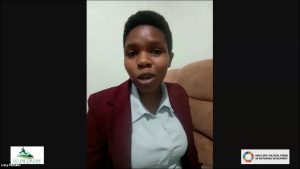
n, and training in agriculture. Mutuku advocated for intentional collaboration between civil societies, CSOs, the private sector, and the public sector to harness the energy and potential of Africa’s youthful population.
She called for investments in infrastructure, local economics, and sustainable farming practices to address climate change and post-harvest losses. Mutuku emphasized the importance of promoting local manufacturing, producing, and consuming to foster economic growth and reduce reliance on imported crops. She also stressed the need for climate-smart agriculture and adapting to climate change realities.
The audience applauded Mutuku’s engaging and insightful remarks, acknowledging the aptness of her points and the need for action to drive positive change in Africa’s agricultural sector.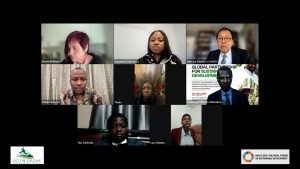
And, you’re with the Cheetah Policy Institute. I like to hear policy people in the policy space speak because, you know, there’s a lot, you know, you’re you’re able to link, conversations around, development economics and, you know, how that affects, the social growth. So, so, yeah, we’d like to hear from you in terms of, you know, policy and sustainable frameworks as it has to do with, the sustainable, the SDGs pretty much and food security.
Dotun Famoriyo 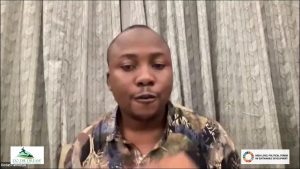 shares as expert with a background in agriculture highlight solutions for scaling up local food production. To achieve global food security, we must empower farmers through knowledge and efficient eco-friendly practices. At Cheetah Policy Institute, we promote sustainable development and policy innovation across Africa through public policy training workshops, research, advocacy, and community engagement..Policy reforms and legislative changes are crucial for sustainable food systems, promoting eco-friendly practices, and supporting local food production. The private sector has a vital role in investing in family farming projects, offering technology, and creating markets for local produce. Together, we can create an environment where sustainable agriculture flourishes, and farmers’ rights are protected. Thank you.
shares as expert with a background in agriculture highlight solutions for scaling up local food production. To achieve global food security, we must empower farmers through knowledge and efficient eco-friendly practices. At Cheetah Policy Institute, we promote sustainable development and policy innovation across Africa through public policy training workshops, research, advocacy, and community engagement..Policy reforms and legislative changes are crucial for sustainable food systems, promoting eco-friendly practices, and supporting local food production. The private sector has a vital role in investing in family farming projects, offering technology, and creating markets for local produce. Together, we can create an environment where sustainable agriculture flourishes, and farmers’ rights are protected. Thank you.
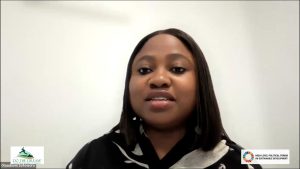 The Solution from Olasubomi Sofowora states how working together can create unique opportunity for sustainable development.? How do we collaborate? How do we join forces to ensure that, you know, we’re able to tackle these, issues that we face? And, you know, I like how you started saying talking about it starts with the farmer. How how are we empowering the farmers?
The Solution from Olasubomi Sofowora states how working together can create unique opportunity for sustainable development.? How do we collaborate? How do we join forces to ensure that, you know, we’re able to tackle these, issues that we face? And, you know, I like how you started saying talking about it starts with the farmer. How how are we empowering the farmers?
How are we ensuring that a farmer that normally would have maybe 2.5 metric ton per hectare, for example? How do we how do we work with that farmer, educate that farmer, build their capacity to, you know, benchmark wall standards, move that 2.5 metric tons to 5 metric tons to 6 metric tons. That way, we are beginning to, you know, scale up on, you know, food that we produce, and then each nation is able to feed themselves. Amazing. So I don’t know if anyone has questions or you have comments.
This session has yielded numerous valuable insights, impacting pharmaceuticals, policy, financing, and sustainability. However, a crucial takeaway is the need to democratise opportunities in agriculture to inspire food security. Farmers cannot achieve this alone, so we must bring their efforts closer to the people. The “Eat what you plant, Plant what you eat” initiative, also known as the Home Farm project, offers a solution. By launching a green farm estate with 10-20 acres for personal farms and food banks, we’ve seen success stories in Ibadan and Lagos, Nigeria. Professionals have turned their hobby farms into productive ventures, inspiring others. Our poster showcases a farmer’s produce, demonstrating the potential. By promoting the Onfa project, we can increase food security, provide inclusive innovation, and simplify global partnerships. This democratization of opportunities benefits indigenous people, women, youth, and farmers, inspiring them to do more.
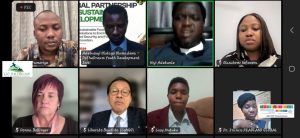 Niyi Adekunle, founder of Yes I Believe Academy, emphasized the importance of the value chain in agriculture in buttressing about the Home Farm project, particularly in Nigeria. He highlighted the need for processing and preserving agricultural produce, such as turning tomatoes into tomato paste and drying catfish to preserve them. He stressed that food is a fundamental physiological need, according to Maslow’s hierarchy, and that everyone should be involved in the food business. He concluded by emphasizing the importance of being intentional in our involvement in the agricultural process to ultimately help humanity.
Niyi Adekunle, founder of Yes I Believe Academy, emphasized the importance of the value chain in agriculture in buttressing about the Home Farm project, particularly in Nigeria. He highlighted the need for processing and preserving agricultural produce, such as turning tomatoes into tomato paste and drying catfish to preserve them. He stressed that food is a fundamental physiological need, according to Maslow’s hierarchy, and that everyone should be involved in the food business. He concluded by emphasizing the importance of being intentional in our involvement in the agricultural process to ultimately help humanity.
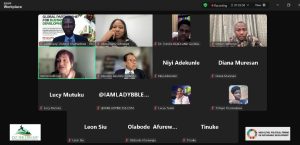 The concluding words centered on he importance of education, resources, and support in replicating the “Eat what we plant, plant what we eat” initiative in different regions stressing the need for customization to meet each area’s specific needs, fostering self-sufficiency and sustainable livelihoods.
The concluding words centered on he importance of education, resources, and support in replicating the “Eat what we plant, plant what we eat” initiative in different regions stressing the need for customization to meet each area’s specific needs, fostering self-sufficiency and sustainable livelihoods.
 For someone my father studied agrieconomics, and as a child, we grew everything we wanted to eat in the house. As a child, I remember, like, 8 years old, I would do cassava overnight. I worked with my parents, yam, every single thing we ate in the house, pepper, tomato. My parents had poultry. she came over, she’s even around. my father’s farm. Nobody farms anymore in our state has been deserted due to insecurity .I was devastated. Now that was me. This is what I knew as a child. I studied economics in school as well. We went to farm during our 4 our funded level, so I know what agriculture is. But I think and I’m praying that there’s a way we could leverage technology even and then one way also that I know will help us all is we all go back to gardening. Kids should be taught how to farm in schools, That should be their practicals, and also everybody must have at least a garden in their homes either in sacks, either in little little little containers. That’s the world where we are. That’s our reality. That’s just the reason I wanted to add.
For someone my father studied agrieconomics, and as a child, we grew everything we wanted to eat in the house. As a child, I remember, like, 8 years old, I would do cassava overnight. I worked with my parents, yam, every single thing we ate in the house, pepper, tomato. My parents had poultry. she came over, she’s even around. my father’s farm. Nobody farms anymore in our state has been deserted due to insecurity .I was devastated. Now that was me. This is what I knew as a child. I studied economics in school as well. We went to farm during our 4 our funded level, so I know what agriculture is. But I think and I’m praying that there’s a way we could leverage technology even and then one way also that I know will help us all is we all go back to gardening. Kids should be taught how to farm in schools, That should be their practicals, and also everybody must have at least a garden in their homes either in sacks, either in little little little containers. That’s the world where we are. That’s our reality. That’s just the reason I wanted to add.
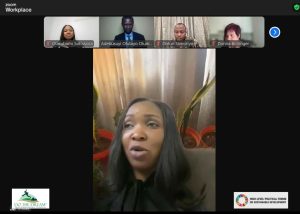 Well, I will just very quickly add an appreciation for the last comment. Most of my experience in working and, closest colleague are actually in Kaduna, and I’ve spent more time with women and children who are kidnapping survivors, and and that’s the greatest challenge. You know, their lands have been taken or they were given away or sold for ransom or they’ve been they’re not safe in the in the places as we’ve just heard, and so they’re not able to farm and raise food in the way that they could otherwise. So, yes, it is an ongoing conversation. I I I spoke with my colleague there in Kaduna just a few hours ago, and he’s like my sister.
Well, I will just very quickly add an appreciation for the last comment. Most of my experience in working and, closest colleague are actually in Kaduna, and I’ve spent more time with women and children who are kidnapping survivors, and and that’s the greatest challenge. You know, their lands have been taken or they were given away or sold for ransom or they’ve been they’re not safe in the in the places as we’ve just heard, and so they’re not able to farm and raise food in the way that they could otherwise. So, yes, it is an ongoing conversation. I I I spoke with my colleague there in Kaduna just a few hours ago, and he’s like my sister.
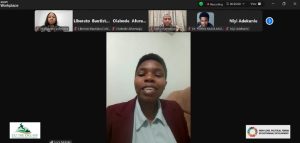 And not to mention the genetic, modification of of, plants and crops, And and and, therefore, the resilience to to, to natural as well as synthetic chemical, synthetic chemicals. And and, therefore, the the traditional crops of of villages and and towns we know, I think, which, Lucy was talking about. You know, what’s what’s in the barrio, what’s in the village compared to what’s in the city. They are they are in danger because they are not the ones, that big corporations are are trying to protect. Instead, big corporations are producing, seeds, that are of high of high value for for marketing compared to what our ancestors have always planted, you know, in in the backyard and has always provided for for families.
And not to mention the genetic, modification of of, plants and crops, And and and, therefore, the resilience to to, to natural as well as synthetic chemical, synthetic chemicals. And and, therefore, the the traditional crops of of villages and and towns we know, I think, which, Lucy was talking about. You know, what’s what’s in the barrio, what’s in the village compared to what’s in the city. They are they are in danger because they are not the ones, that big corporations are are trying to protect. Instead, big corporations are producing, seeds, that are of high of high value for for marketing compared to what our ancestors have always planted, you know, in in the backyard and has always provided for for families.
And and not and then food sovereign food security is is imperiled and endangered by food sourcing thousands of miles away. In other words, you know, what do you call this? The grain from South America, which has become so the name escapes me at the moment. And yet we we love eating them in the global north, but they are never produced in the global north. And so the cost the cost of food has multiplied many times over to the point that it’s not accessible.
It’s not, it cannot it’s it’s too expensive to be bought by ordinary ordinary families because much of the added cost is the transportation. So the sourcing of food, within a certain mileage radius, is is one of the solutions to making food available and making food, sustainable and making food affordable to to all families, is by, patronizing that which is local and that is that which maybe, I don’t know, the the mileage. I can imagine within a 50 mile radius, 75 kilometer radius. If it’s not available within that radius, then we should start lessening, the consumption of those foods. So, I think what is crucial to agriculture is not just foods food security, but food sovereignty.
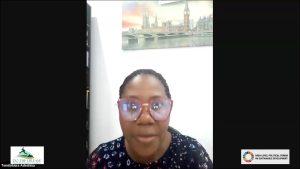 Dr. Temilola Adesina shared her personal experience growing up on a farm, where her family grew everything they ate. She fondly recalled helping her parents with farming tasks from a young age. However, she lamented that her father’s farm has been deserted due to insecurity, a harsh reality many face. As an economist and someone familiar with agriculture, she believes technology can be leveraged to improve farming practices. Moreover, she advocates for teaching children farming skills in schools and encouraging everyone to have a garden at home, no matter how small, to promote self-sufficiency and sustainability.
Dr. Temilola Adesina shared her personal experience growing up on a farm, where her family grew everything they ate. She fondly recalled helping her parents with farming tasks from a young age. However, she lamented that her father’s farm has been deserted due to insecurity, a harsh reality many face. As an economist and someone familiar with agriculture, she believes technology can be leveraged to improve farming practices. Moreover, she advocates for teaching children farming skills in schools and encouraging everyone to have a garden at home, no matter how small, to promote self-sufficiency and sustainability.
 Tinuke Bosun Okusaga, interim Board Chairperson of DoTheDreamYouth Development Initiative, expressed her passion for sustainable agriculture, having studied agricultural economics and grown up with it. She lamented Nigeria’s reliance on food importation, citing the government’s recent waiver for importers. To address this, she suggested focusing on three areas: maximizing young agricultural professionals by making land available, ensuring adequate storage and processing systems near farms or consumption areas, and encouraging round table discussions to prioritize food security and sustainability.
Tinuke Bosun Okusaga, interim Board Chairperson of DoTheDreamYouth Development Initiative, expressed her passion for sustainable agriculture, having studied agricultural economics and grown up with it. She lamented Nigeria’s reliance on food importation, citing the government’s recent waiver for importers. To address this, she suggested focusing on three areas: maximizing young agricultural professionals by making land available, ensuring adequate storage and processing systems near farms or consumption areas, and encouraging round table discussions to prioritize food security and sustainability.
